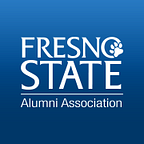Trailblazing alum receives Top Ten Professional Women Award
By MARISA MATA, Student Writer
The Marjaree Mason Center recently presented Lori Hamada (1984) with one of its Top Ten Professional Women Awards for “[serving] as a role model and [giving] back to [the] community.” Hamada was nominated for the award by her colleagues at the AIMS Center for Math and Science Education, where she has been the executive director since 2014. Hamada believes she received this honor not just for the work she’s accomplished since 2014, but over the course of her entire career in education, starting in 1985.
“I’m from Kingsburg, and I went from Kingsburg directly to UC Davis, which was quite a leap of faith. I’m [a first generation college student], and I thought I wanted to go into veterinary medicine… [and] no one was really advising women at that time to go into sciences,” Hamada said.
After taking a chemistry class, Hamada decided she didn’t want to pursue veterinary medicine and, with no one to encourage her to keep going, changed her major to computer programming. In programming, Hamada used the programming and mathematics skills she learned in high school, and after realizing her natural affinity for math, she decided to change her major to mathematics and become a teacher. She transferred to Fresno State where she got her teaching credential and graduated in December of 1984.
In January, Hamada began teaching math at Chowchilla Middle School, and then spent a year at Madera High. She was then recruited by her alma mater, Kingsburg High, where she taught for 12 years.
“I was asked to teach calculus and trig…and I requested every single year to have at least one section of algebra one. If you teach algebra, you see kids struggling. You see kids repeating. You see kids failing. And I was pretty dedicated to working with those students.”
“And when we started a non-English speaking remedial course, I requested that class because I wanted to help those kids fill their gaps. So there were many years where I was teaching the highest level math and the most entry level class…but I think I learned the most from the kids that were struggling, and I think it’s important for teachers to be open to learning from their students.”
Hamada began working at the Fresno County Office of Education in 1998, as the mathematics coordinator.
“The role of a coordinator is to be a support for the different districts within the county. As I started working with [teachers and administrators] and being in classrooms and offering to help and do workshops, the requests started flowing in. By the time I left 12 years later, there were nine of us, not just me. We really built up a reputation at the county office of being able to help districts improve their mathematics department.”
During this time Hamada also started Math on Call — a local television program that allowed students to call in and get tutoring from teachers on-air.
Hamada then worked as the director of a nonprofit, CPM Educational Program, for two years before becoming a principal in Central Unified School District. In 2014 Hamada was contacted by the CEO of the AIMS Foundation, Richard Thiessen. He asked Hamada to be the director of the new AIMS Center, located on the Fresno Pacific University campus.
“And it was kind of a no-brainer — the opportunity to change the world for kids.”
The AIMS Center was launched with the goal of studying existing research about how children learn math and science and designing strategies to help teachers embrace the research’s findings to improve what goes on in the classroom.
“We’ve partnered with Head Start and are working with three to five year olds…We’re reenacting those things [in the literature] with the children in classrooms. Our goal is to develop a video library of kids in the Valley exhibiting evidence of each of the stages of the developmental progression we know children have to go through.”
“We’re seeing the legitimacy of the literature coming to life, so we think that video library is a critical piece. When we work with teachers next year we can say, ‘Look for this to happen.’”
“I don’t work directly with kids…but I’m supporting [my team] as they’re working directly with kids and teachers. I’m still very active in working with teachers, because I believe empowering teachers is how you empower students. For many years now, that has really been my driving force.”
Related:
A changing career course, navigating the bigger system
A young alum’s career takes flight
